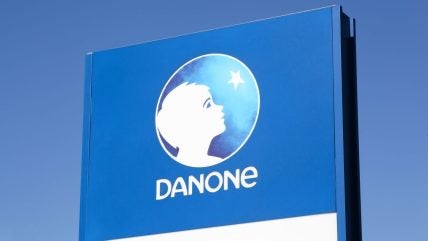
Danone said it expects to continue to apply pricing measures throughout 2024 as it continues to tackle inflationary pressures.
Speaking to analysts today during its annual results call, CEO, Antoine de Saint-Affrique, said: “We are not in [a] world of deflation, we are in a world of slowing down inflation.”
Danone’s CFO, Juergen Esser added the company “[expects] inflation to further normalise in 2024, but as Antoine said, there will be inflation.”
The main drivers, he said, include “elements like transport… you see oil prices back around $84-$85”, “cost of labour”, high prices of raw materials like sugar, and “the forex”, which plays “a role especially in emerging markets”.
As a result, Esser indicated Danone would still look to up prices but with moves being “much more selective… depending on the category and depending on the region”.
He added: “Pricing is positive overall for the year 2024”.
In 2023, Danone booked net sales of €27.6bn ($29.9bn), an increase of 7% on a like-for-like basis.
The company saw operating income of €2bn, a 4.7% drop on 2022, while recurring operating income sat at €3.5bn, a 3.1% hike on the previous year.
Net income for the group declined 8.1% year-on-year at €881m.
Danone’s Waters division, its smallest by annual sales, reported a 5.5% rise in sales to €4.79bn for 2023. On a like-for-like basis, sales were up 9.1%. The volume/mix from the division inched up 0.8%.
On the call with analysts, Danone’s management also spoke about the overall cash impact of the deconsolidation of the EDP business in Russia.
Earnings per share grew 3.4% at €3.54 year-on-year, driven by operational performance which was partially offset by the loss of business in Russia.
According to Esser, the deconsolidation of the business had “zero cash impact”.
Reports have emerged this week suggesting that the Acitmel maker is to sell its Russian operations to a local peer, Vamin Tatarstan, for Rbs17.7bn ($191m).



